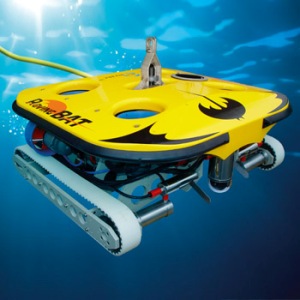Sep 6 2010
CSIP, a leading provider of remote-controlled robotic systems for unfavorable environments, has released a Rowing Bat (ROV) which has an incorporated automated system for detecting hydrocarbon leakage. Recently with the help of underwater cameras, the Roving bat was demonstrated for a German TV show to establish its role in streamlining the various processes of offshore activity.
 Rowing Bat
Rowing Bat
Simon Gilligan, Managing Director of CSIP has stated that in the beginning the ROV was created to review the body of ships, underwater inclusions and hydraulic dams for any indications of impairments. He added that the product can also be used to locate and discard all forms of explosives fixed to ship’s casing, walls of the harbor etc. He also reported that the robust ROV has six integrated propulsive devices, among which two of them are positioned horizontally and the remaining three in a vertical direction, thereby helping it to survive amidst heavy water currents, providing reliable assessment of any damage.
The body of the ROV is innovatively designed to get in touch with the target in a free- flying mode. This feature assists in reducing the drag forces, thereby enabling the Rowing bat to get easily attached to any surface. The rowing bat assumes a crawling mode of motion while moving across a surface for close determination of damage and it can inspect up to 20m per minute. When moving upwards, the thrust is 80kg and while traveling horizontally the thrust is 48 kg.